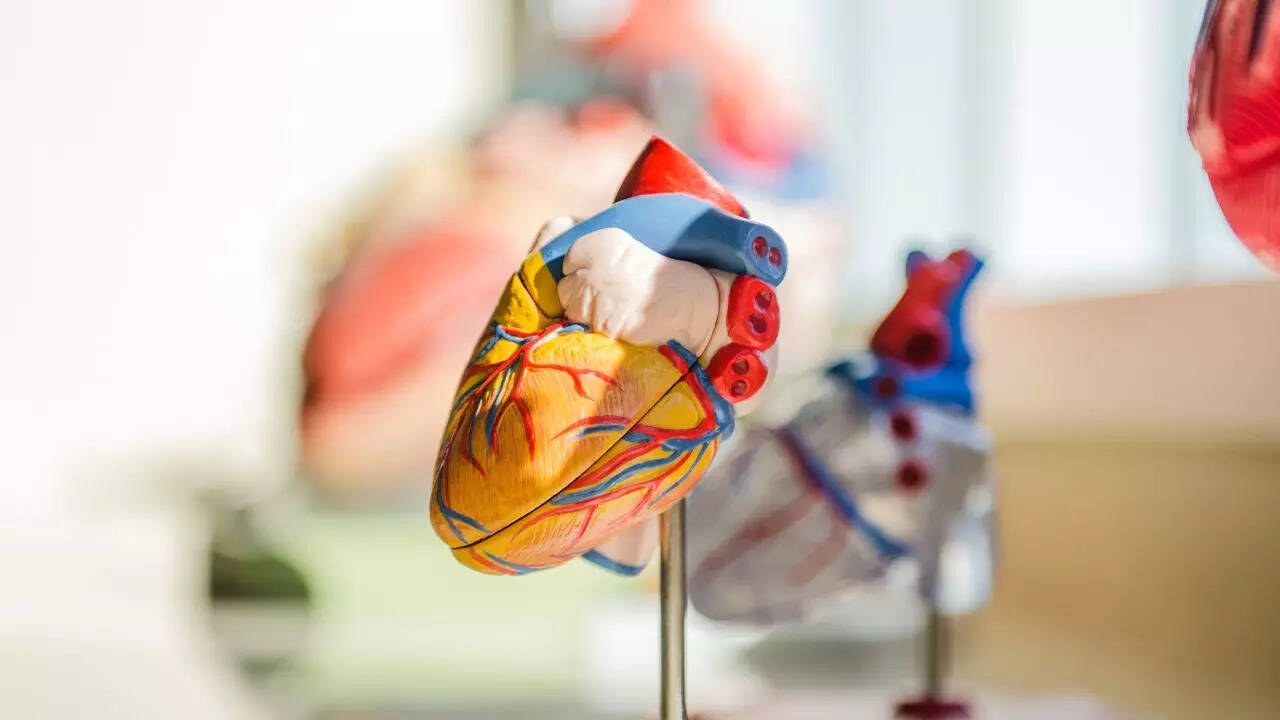What makes the heartbeat stop at night? Know the silent symptoms you might miss |

In today’s stressful and fast-paced lifestyle, Chronic Heart Failure (CHF) has become a rising health concern. Unlike sudden heart attacks, CHF develops gradually and often goes unnoticed until it becomes severe. What makes this condition especially dangerous is its tendency to worsen at night, when the body is at rest and the heart works differently compared to waking hours. During sleep, reduced heart function can trigger breathlessness, fluid accumulation, and even life-threatening cardiac events. Understanding why CHF poses greater risks during sleep, how to recognize early warning signs, and adopting preventive measures can save lives.
Why heart failure risks increase during sleep

At night, when a person lies down, body fluids naturally shift from the legs to the chest, increasing pressure on the lungs and heart. In patients with heart failure, this fluid redistribution worsens breathing difficulties and strains the already weakened heart. This condition is often experienced as paroxysmal nocturnal dyspnea (PND) – waking up suddenly, gasping for breath – or orthopnea, which is difficulty breathing when lying flat.
- Slower heart rate – During sleep, the heart beats slower, reducing its pumping efficiency in those with weakened heart muscles.
- Fluid overload – Nighttime urine production increases in CHF patients, causing frequent urination and disrupted sleep patterns.
- Oxygen fluctuations – Conditions like sleep apnea, common among CHF patients, can further reduce oxygen levels, worsening heart strain.
Early symptoms of chronic heart failure that appear at night
Many initial signs of chronic heart failure become more noticeable while sleeping:
- Shortness of breath while lying flat – Needing multiple pillows or sleeping in a recliner to breathe comfortably.
- Frequent Nighttime Urination (Nocturia) – Waking up several times to urinate due to fluid accumulation.
- Sudden nighttime breathlessness (PND) – Waking up gasping for air.
- Irregular heartbeats and chest tightness – Often more prominent at night when the body is at rest.
- Fatigue upon waking – Despite a full night’s sleep, waking up exhausted due to poor heart function and reduced oxygen supply.
Ignoring these symptoms can lead to sudden cardiac complications, highlighting the importance of seeking timely medical attention.
Are men more vulnerable to nighttime heart risks
Studies show that before age 45, men are at a higher risk of developing chronic heart failure. However, after the age of 50, men and women face equal risk, particularly at night. Hormonal changes in women after menopause increase their vulnerability to cardiovascular diseases, making nighttime monitoring important for both genders.
Stages of heart failure and nighttime impact
Stage 1 – Early stageMild symptoms, often unnoticed during the day, may first appear at night as occasional breathlessness or increased urination.Stage 2 & 3 – Moderate heart failureShortness of breath while lying down becomes common. Patients may need multiple pillows to sleep or wake up coughing and gasping.Stage 4 – Severe heart failureSleep becomes severely disrupted; patients often cannot sleep flat and experience repeated nighttime cardiac distress. In such cases, hospital-based interventions or even a heart transplant may be required.

How to protect your heart during sleep
- Sleep with head elevated – Using extra pillows or an adjustable bed reduces fluid shift and eases breathing.
- Monitor fluid intake – Avoid excess liquids before bedtime to reduce nighttime fluid buildup and urination.
- Control salt consumption – Reducing sodium decreases water retention, easing heart workload.
- Maintain healthy sleep patterns – Go to bed and wake up at consistent times to regulate cardiovascular function.
- Regular checkups – Monitor heart function and sleep quality, especially if symptoms worsen at night.
Lifestyle changes for better nighttime heart health
- Exercise regularly – Light activities like walking or yoga improve overall heart function.
- Avoid smoking and alcohol – Both substances disrupt sleep and weaken the heart.
- Stress management – Techniques like meditation and deep breathing can prevent nighttime blood pressure spikes.
- Periodic sleep studies – Identifying hidden sleep disorders like sleep apnea helps in reducing nighttime cardiac risk.
Important tip: Chronic Heart Failure is often called a “silent killer” because it creeps up slowly and causes most damage when the body is resting. Nighttime symptoms, such as sudden breathlessness, frequent urination, and disturbed sleep, are critical warning signs that should never be ignored. By understanding the nighttime risks and adopting lifestyle modifications, patients can improve both heart health and sleep quality, significantly reducing life-threatening complications.Also Read | Magnesium may be the missing nutrient your brain needs to fight brain fog and boost focus naturally





